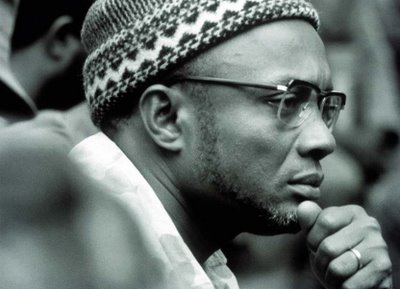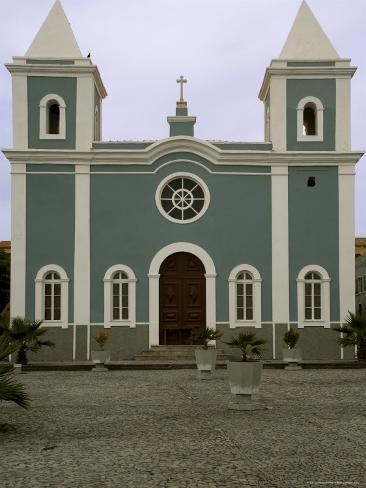Some of
these holidays didn’t have a lot of information as to traditions and that sort
of thing. For some, I gathered
information from a few blogs I found and a few sites that had some information,
but I hope someone will enlighten me to fill in some blanks.
New Year’s
Day. January 1. New Years celebrations in Cape Verde
generally last two days. There is a lot of singing and music, and parades with
singing and music. I read that on
some islands, there’s a tradition that these musicians will parade through the
streets gathering people like that Japanese game Katamari Damacy, and finally
ending at the local hospital and playing as loud as they could so the sick
people could hear it too. The new year is brought in by fireworks and long
parties with food and drinks. Most businesses and schools are closed during this
time.
Democracy
Day. January 13. Also known as Struggle for Freedom and
Democracy Day. It marks the day of
Cape Verde’s first election. They use this time as a means of studying Cape
Verdean history in regards to civics lessons – discussing the roles of
government and how government works. There are tours of the governmental
buildings for students and special programs.
Heroes
Day. January 20. This holiday somewhat runs into the
Democracy Day celebrations and programs. It commemorates the assassination of
Amílcar Cabral. He was an agricultural engineer and writer who was actually
born in Guinea-Bissau but was prolific in the fight for independence of these
two nations. Unfortunately, he was
assassinated in 1973, eight months before Guinea-Bissau gained independence and
about two years and a half years before Cape Verde would follow suit.
Carnival. February. Carnival is a fairly big
affair in Cape Verde, and especially so on the island of São Vicente where tens
of thousands of people show up for the festivities. (This island is the home of the famous morna singer Cesária
Évora.) Music is also a very important aspect of Cape Verdean life, and for a
culture that already uses music and dancing as a means of celebration, Carnival
is a given to be a huge affair. In fact the Carnival celebrations on São
Vicente have been considered by some to be the Carnival capital of Africa. Music
festivals, theatre fests, local food vendors, and other cultural arts fests are
also very popular across the islands during this time.
Labour
Day. May 1. This day is in honor
of the international workers of the world. It’s also a time to reflect and
discuss labor issues. Most
businesses and schools have this day off, and it becomes a day of relaxing with
family and friends.
Children’s
Day. June 1. At one time, Children’s Day was a huge
festival. Schools would start two
to three weeks ahead preparing for this day. There would be food and games,
music and dance, theatre performances, treats, cards, special activities, and
small presents for the kids. Today, there may not be such a push towards the
blowout on celebrations – perhaps for economic reasons – but some of these
things still go on. Just maybe on
a smaller scale for some.
Independence
Day. July 5. This day marks Cape
Verde’s independence from Portugal I 1975. It’s a day commemorating the achievements and history of the
island nation. Like with most
other country’s independence days, the day is filled with speeches and
appearances from political leaders, local festivals, including local food,
music, dancing, and displays of other cultural arts. Every city and town is decorated with the national flag and
its colors, and the national anthem is heard as well. In the countries where there are a lot of ex-pats, you can
also find local festivals in honor of Independence Day.
Assumption. August 15. Also known as Feast of the Assumption of Mary, it celebrates
the ascension of Mary into Heaven. Because Cape Verde has a large Catholic
population, it commonly celebrated by most of the people.
National
Day. September 12. Another national holiday, this also
marks the birthday of Amílcar Cabral.
Probably celebrated much in the same ways as Heroes Day. Not a whole lot
of information on this.
All
Saints’ Day. November 1. This is a mostly Catholic holiday,
celebrating all of the saints, especially those who do not have their own feast
days. I know in some countries people
choose to decorate and do some upkeep to loved one’s gravesites at this time as
well as attend a special mass, but I couldn’t find any definitive answer that
Cape Verdeans take part in this tradition as well.
Christmas
Day. December 25. Unfortunately, and weirdly enough,
there’s not much information on specific Christmas traditions in Cape
Verde. I’m sort of stunned. The
country is by far majority Catholic, yet most of the information was that they
just simply celebrate it. I imagine they probably celebrate it in many of the
ways most Westerners are accustomed to, taking on many of the traditions of the
Portuguese: decorating their homes and communities, sharing meals with family
and friends (Cape Verdeans are very hospitable, even if they are poor),
attending special church services, Christmas caroling, and exchanging gifts.
Up
next: art and literature





The background of this page conflicts with the words. Very hard to read.
ReplyDeleteSorry about that -- for some reason, a handful of my posts didn't post correctly. I think I fixed it.
ReplyDelete